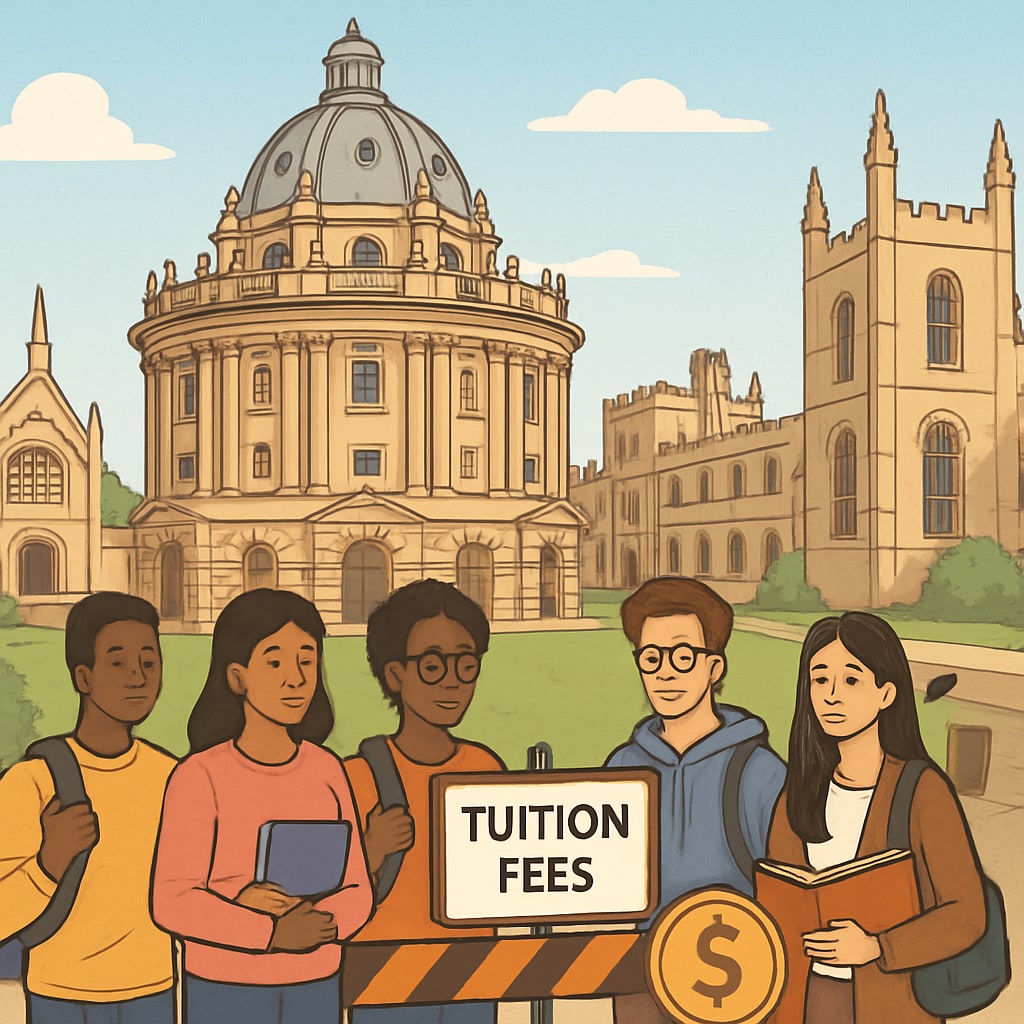Immigrant students in the UK, particularly those with limited residency rights, often encounter significant barriers to accessing higher education, including high international tuition fees and restrictions tied to their immigration status. For example, institutions such as Oxford University, renowned for academic excellence, become inaccessible due to the financial strain and systemic inequalities imposed on non-citizen students. This situation raises critical concerns about education equity and the long-term impact on social mobility for immigrant communities.
The Financial Burden: High Tuition Fees for Immigrant Students
One of the most pressing challenges faced by immigrant students in the UK is the prohibitive cost of tuition. Unlike domestic students who benefit from subsidized fees, many immigrant students are classified as international students, even if they have lived in the country for years. This classification significantly inflates tuition costs, often reaching £25,000–£40,000 annually for undergraduate programs at top universities like Oxford University. Such financial demands not only limit access to education but also place a disproportionate burden on families who may already face economic hardship.

For immigrant families, securing these funds frequently means taking on crippling debt or forgoing higher education altogether. According to a report by Universities UK, only a small percentage of immigrant students successfully navigate these financial obstacles to complete their degrees. This financial disparity perpetuates cycles of inequality, preventing immigrant communities from accessing opportunities that could lead to upward social mobility.
Identity-Based Restrictions: Limited Residency Rights and Their Consequences
In addition to financial barriers, immigrant students face restrictions tied to their residency status. Limited leave to remain (temporary residency) often excludes students from accessing scholarships, grants, or student loans available to domestic applicants. Moreover, these students may be required to meet stricter visa regulations, such as proving financial solvency, which adds another layer of complexity to their enrollment process.

These restrictions not only create uncertainty but also foster feelings of exclusion within academic environments. As noted by the Migration Observatory at the University of Oxford (Migration Observatory), immigrant students often face systemic barriers that hinder their ability to fully integrate into academic and social communities. Consequently, they miss out on key resources and networks that are vital for academic success.
The Broader Impact: Education Equity and Social Mobility
The implications of these barriers extend far beyond individual students. When immigrant communities are systematically excluded from higher education, society as a whole loses out on the diverse perspectives and talents these students could bring. Education equity is not just an ethical concern; it is also an economic imperative. Studies from the British Council indicate that inclusive education policies contribute to stronger economies and more cohesive societies.
However, current policies surrounding tuition fees and residency rights continue to exacerbate inequality. Addressing these issues requires a multi-faceted approach, including revising tuition classification criteria, expanding financial aid programs, and ensuring that residency restrictions do not unfairly penalize long-term immigrants.
As a result, policymakers and educational institutions must work collaboratively to dismantle these hidden walls that prevent immigrant students from achieving their full potential.
Conclusion: The combination of high tuition fees and restrictive residency policies creates substantial barriers for immigrant students in the UK, particularly at elite institutions like Oxford University. Addressing these challenges is essential for fostering education equity and unlocking opportunities for marginalized communities, ultimately benefiting society at large. Achieving this goal requires systemic changes that prioritize inclusivity and fairness in higher education.


